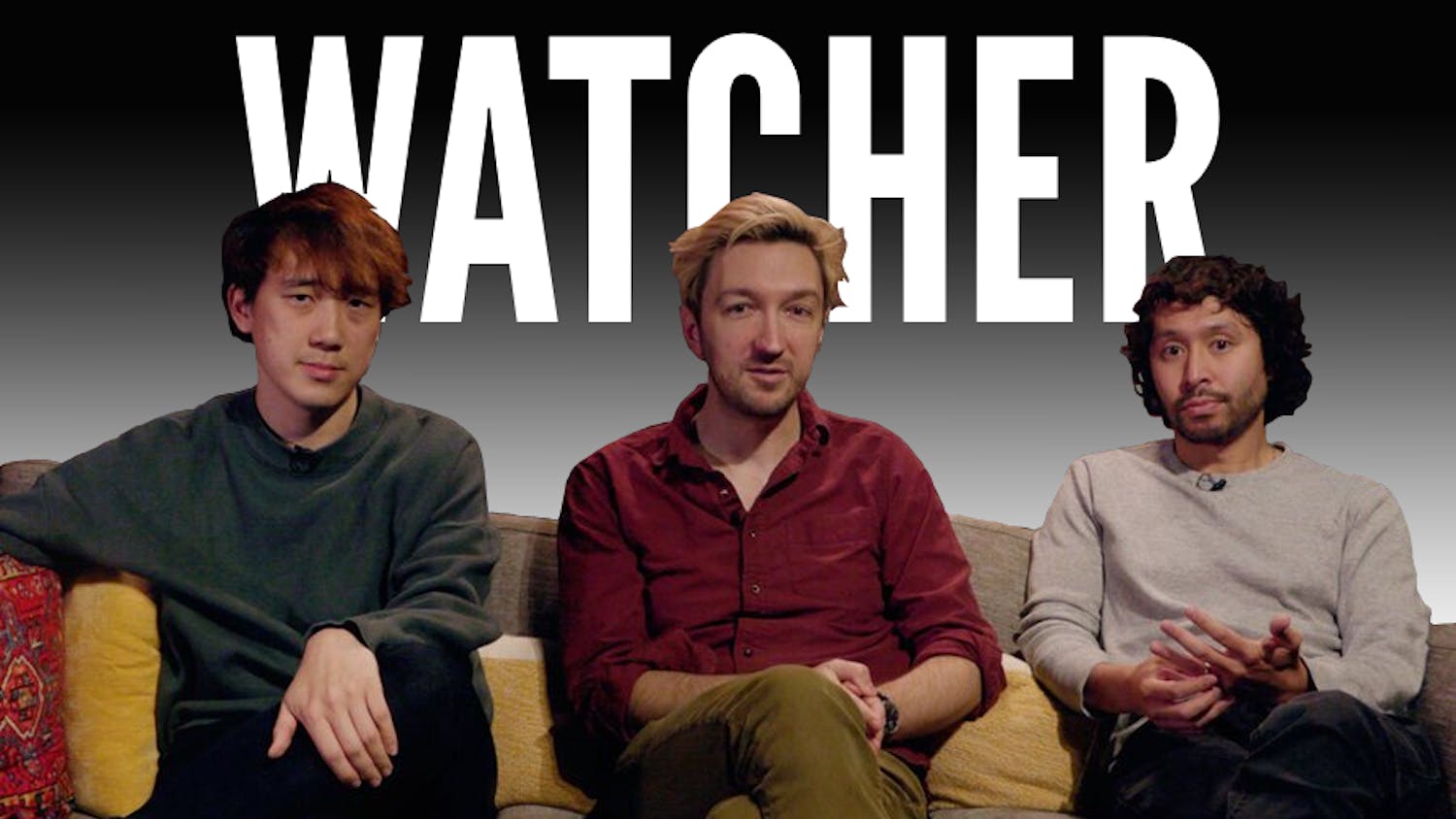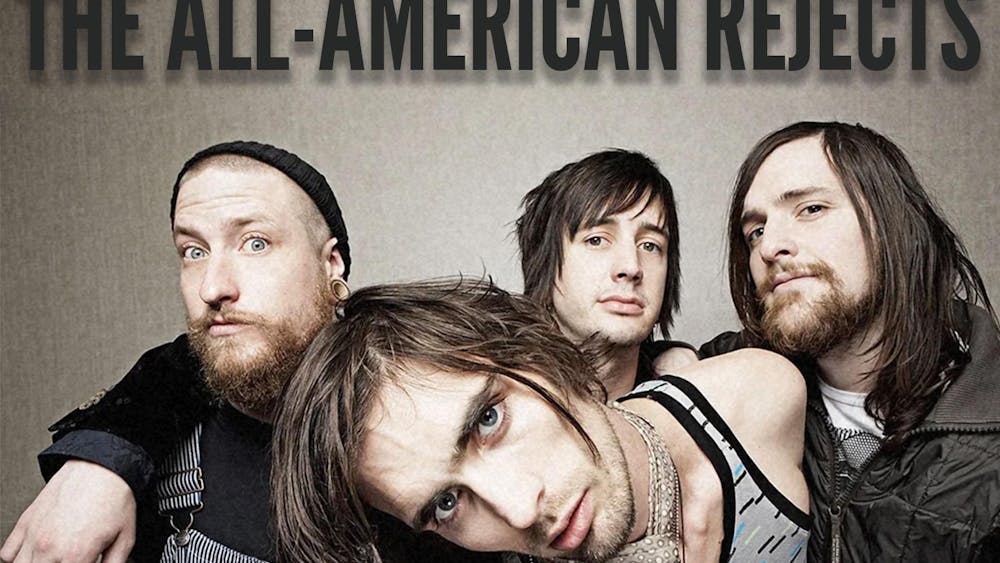
Kanye West has been a fixture in both hip-hop and the media in general for the past 10 years. Whether he's creating innovative music and fashion or dissing Taylor Swift at the VMA's, Kanye tumultuous history has been memorable to say the least. We at Scene have spent all week compiling some of our favorite Kanye memories throughout the past 10 years in preparation for today's release of his new album, titled "The Life of Pablo," in an installment appropriately named "hYpE Week." Today's final addition is our best attempt of summarizing Kanye's discography.
The College Dropout — Erin McAuliffe
“The College Dropout,” West’s first album, was released on February 10, 2004. His seventh solo studio album, “The Life of Pablo,” is set to drop on Wednesday, February 11.
In the twelve years since the 21-song debut, West has streamlined his stylings: dropping the skits for hard-hitting verses and electronic layering.
“Dropout” features the same family theme channeled on recent releases like “Only One,” “Real Friends” and “No Parties.” Although “Real Friends” is the only single on the current track list, fans are enthusiastic about West’s potential return to his roots.
West tweeted that “The Life of Pablo” will be a gospel album. Although this seems unlikely with a track titled “FML” listed between already released “Fade,” “Real Friends” and “Wolves,” it resonates with “Jesus Walks” lyrics: “But if I talk about God my record won’t get played.” The rapper’s confidence — noted, admired and scorned — and work has elevated him from a new rapper nervously straying from the rap norm to an established act teasing “one of the greatest albums of all time” and touting it as gospel.
West’s first album changed the rap game. Tracks like “Jesus Walks” resonate just as affectingly today in theme (“Getting choked by detectives, yeah, yeah, now check the method / They be askin’ us questions, harass and arrest us”) and sound (the gasps sound straight out of "I Am A God") as in 2004.
West is known as loose lipped in today's media, but in 2004 he was trying to make it with his jaw wired shut. The album's final 17 minutes and 20 seconds, “Family Business” and “Last Call,” iconically span a call-to-action for familial values and a long-winded speech/rant/conversation. Judging from his recent singles and tweets, “The Life of Pablo” might reintroduce both.
"Late Registration" — Matthew Munhall
An expanded version of this article appeared in the Sept. 1 issue of The Observer.
2005’s “Late Registration” is the best illustration that a desire for new ideas has always been at the heart of West’s career. Its release was the moment when Kanye was revealed not to be just a promising newcomer, but a pop music auteur, who was hell-bent on pushing the conversation forward at all costs.
On “Late Registration,” the most inspired move was recruiting Jon Brion, best known for his collaborations with Fiona Apple, as a co-producer. Rather than just regurgitating the pitched soul samples of “College Dropout,” Brion lent orchestral grandeur to West’s productions; his involvement resulted in a rap music “Pet Sounds,” a baroque-inspired album that revels in its rich sonic palette.
Kanye’s second album explores the contradiction that’s always been at the heart of West’s work. It’s an album where the goofy crossover hit “Gold Digger” — which spent 10 weeks at No. 1 — co-exists with “Crack Music,” a commentary on crack cocaine’s effects on black communities in the 1980s. As it stands, “Late Registration” is perhaps most representative of Kanye’s career as a whole: sprawling, imperfect and full of contradictions, yet endlessly compelling, innovative and influential.
"Graduation" — Adam Ramos
Yesterday, Kanye announced that he once again changed the name of his upcoming album. Originally titled “So Help Me God,” the album’s title was later changed to “SWISH,” followed by “Waves,” and now finally, we are left with “The Life of Pablo.” Excited as I am for today’s release, I must admit to rolling my eyes after reading the news about the new name change — but, to be fair, that’s just Kanye being Kanye. The Chicago rapper has a history of meticulously choosing the perfect title to encapsulate his work. Enter 2007’s Graduation, an album which successfully elevated both Kanye’s work as well as hip-hop in general to a whole new level; a graduation of sorts — if that’s not too cliché.
Equipped with more subtle hooks and innovative beats, “Graduation” successfully integrated a much more diverse musical range then albums past, evident in the menacingly warped synth of “Drunk and Hot Girls” or the funky house beat in “Stronger.” Lyrically, “Graduation” introduced fans to the Kanye we know today, shedding vulnerability with confidence, but sharper in all senses. Looking back, it’s comical, but in 2007 many wondered whose record would sell more, Kanye’s “Graduation” or 50 Cent’s “Curtis.” It’s more than clear who was at the top of the class — I’ll stop now.
"808s and Heartbreak" — Jimmy Kemper
808s and Heartbreak was a very different album for Kanye. For years, he had promised “Good A** Job” would be his fourth studio album. It was supposed to be the capstone on his college-themed discography. Fans had hoped it would develop those innovative and upward beats, creative lyric crafting and themes of upward-mobility-against-all-odds that had pushed Kanye from a beat-maker in the dim light of the recording studio into the flashing lights of global hip-hop fame.
Instead, Kanye ditched positivity entirely. Kanye suffered not only the end of a very long and serious romantic relationship but also the death of his own mother due to surgical complications within a very short time period. In response to all this heartbreak, Kanye stripped back all the braggadocio from his production and revealed a very intimate and unexpected album, “808s & Heartbreak.”
Where West’s previous albums were loud, complicated and proud, “808s & Heartbreak” was quiet, minimalist and tender. It was his most revolutionary work to date, and set the stage for his later, even more groundbreaking albums.
"My Beautiful Dark Twisted Fantasy" — Jack Riedy
2010 was a weird time for Kanye. His last album had hits, but it was a radical departure that came with a mixed critical reception. After interrupting Taylor Swift’s acceptance at the 2009 Video Music Awards, Kanye became one of the most hated men in American pop culture. What can you do when the President of the United States calls you a jackass? If you’re Kanye West, you take a self-imposed exile in the POTUS’s home state, set up a “rap camp” with the best and brightest in the game, and craft one of the greatest albums in history.
“My Beautiful Dark Twisted Fantasy” is the crown jewel of Kanye’s catalog, an album that takes in all the stylistic elements of his previous four and spits out something far greater. It’s an excessive album about the beauty of excess, meditating on the hollow promise of the American dream while reveling in the hedonism of success. Every track contains at least one revelatory moment that changed the trajectory of pop music. The blistering guitar riff on “Gorgeous.” Nicki Minaj’s world-stopping verse on “Monster.” The delicate Aphex Twin sample on “Blame Game.” Bon Iver’s vocals exploding into the chorus of “Lost In The World.” Every second of “Runaway.” Drawing the best work out of each of his collaborators, Kanye conveys how it feels to be an African-American man brought to the top by his talent and dragged to the bottom by his flaws. An album like this can only end with applause.
"Yeezus" — Adam Ramos
In many respects, Kanye’s 2013 “Yeezus” was the evolution of 2008’s “808 & Heartbreak, but it was much more than just that. Minimal, expansive and chilling at its core, “Yeezus” is Kanye’s most ambitious album to date — in just 10 songs, no less. Experimental samples like Arca’s “Feminine” on “Hold My Liquor” or TNGHT’s “R U Ready?” on the pivotal “Blood on the Leaves,” produce a very distant feel, mirrored in Kanye’s pervasive intensely insecure lyrics.
Opening with “On Sight,” an abrasive and warped oddity, “Yeezus” wastes no time in establishing its rejection of commercial appeal, accentuated on “New Slaves” when Kanye barks, “They tryna make new slaves / See that's that privately owned prison / Get your piece today / They prolly all in the Hamptons.” Nothing about “Yeezus” is friendly. The lush, dance hall samples of albums past are forgotten, replaced with dark hooks, glitchy beats and imposing synths. Cover and title included, every aspect of “Yeezus” is stripped down, revealing a much more surreal image and a Kanye unmitigated in his creative pursuits.













